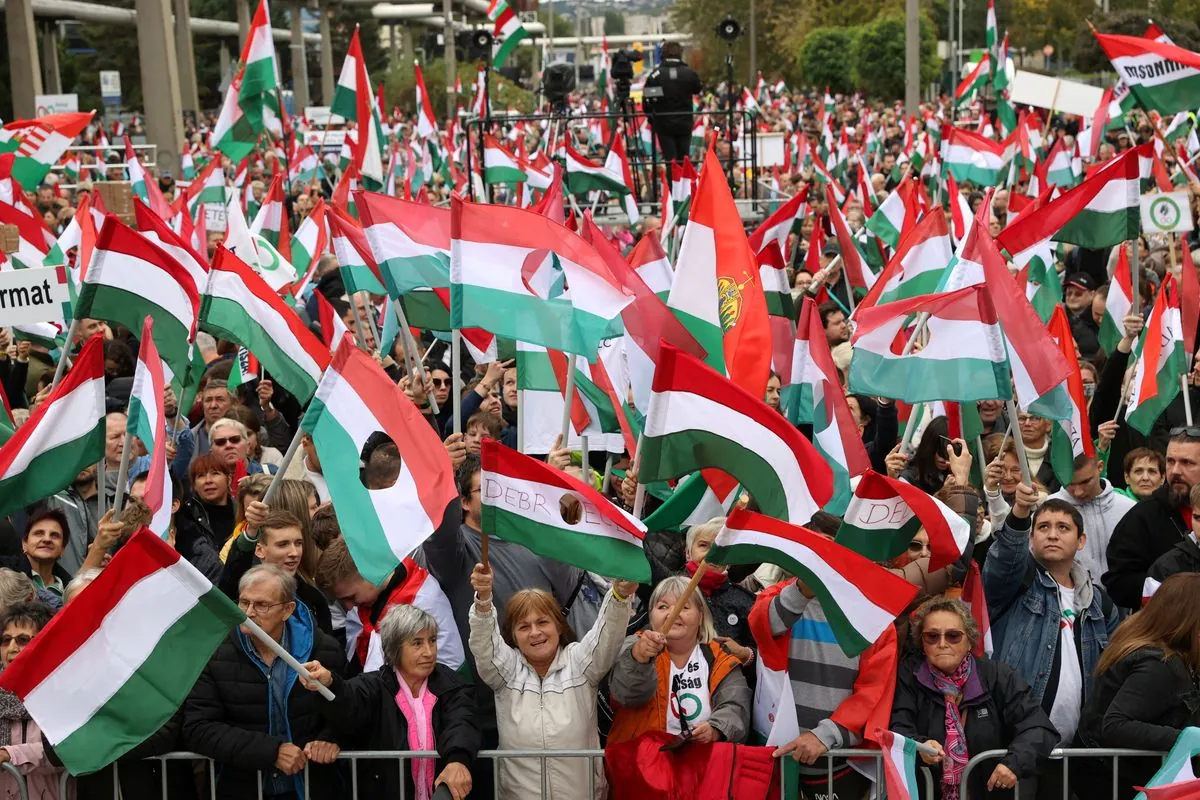In a significant display of public dissent, thousands of Hungarians gathered outside the state television headquarters in Budapest, voicing their opposition to what they perceive as biased media coverage. The demonstration, organized by the opposition TISZA party, highlighted growing concerns about media freedom in the country, which joined the European Union in 2004.
Protesters, waving national flags and carrying banners with slogans like "Stop Propaganda," expressed their frustration with the current state of public broadcasting. They argue that the state-run MTVA network predominantly features politicians from Prime Minister Viktor Orban's party and government-aligned analysts, effectively functioning as a propaganda tool.
The TISZA party, whose name stands for Tisztelet es Szabadsag (Respect and Freedom), has emerged as a formidable challenger to Orban's right-wing nationalist government. Led by Peter Magyar, a newcomer to the political scene, TISZA has gained significant traction among voters dissatisfied with the current administration's policies.
Recent polls indicate a narrowing gap between TISZA and Orban's Fidesz party. According to a survey by pollster Median, TISZA enjoys 39% support among voters, while Fidesz maintains a slight lead at 43%. This shift in public opinion comes as Hungary grapples with economic challenges, including a recent inflation crisis.
Magyar, addressing the crowd, demanded that public service television broadcast the protest without edits. He emphasized the need for reform, stating, "What we have as public service media in Hungary today is a global scandal, we have had enough."
Hungary, known for its rich cultural heritage and scientific contributions, has faced criticism regarding press freedom under Orban's leadership. The United Nations Special Rapporteur on freedom of opinion and expression, Irene Khan, has expressed concerns about the "distorted media environment" in the country, questioning the pluralism, diversity, and independence of media outlets.
While the government denies undermining press freedom, critics argue that both public and private media sectors are largely controlled by allies of Fidesz. This concentration of media ownership has raised alarms about the state of democratic checks and balances in Hungary, a country that transitioned from communism to democracy in 1989.
"We have had enough of the malice, the lies, the propaganda, our patience has run out."
As Hungary approaches its next elections, scheduled for early 2026, the political landscape appears increasingly dynamic. The TISZA party has promised to address corruption, rebuild public service media, and restore democratic institutions if elected.
This protest marks a crucial moment in Hungary's ongoing debate about media freedom and political representation. As the country, known for its thermal baths and Olympic achievements in water sports, navigates these challenges, the international community continues to watch closely, recognizing the importance of a free press in maintaining a healthy democracy.
